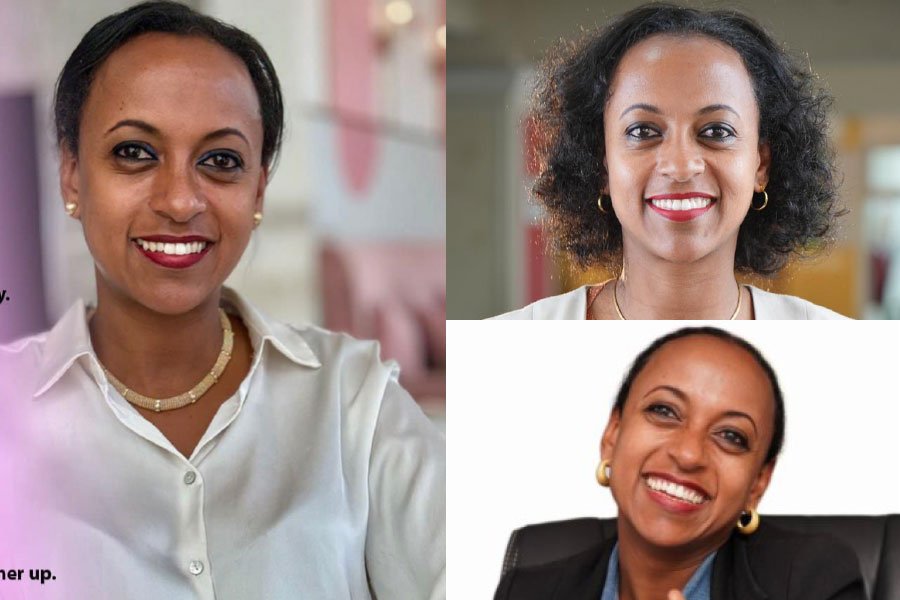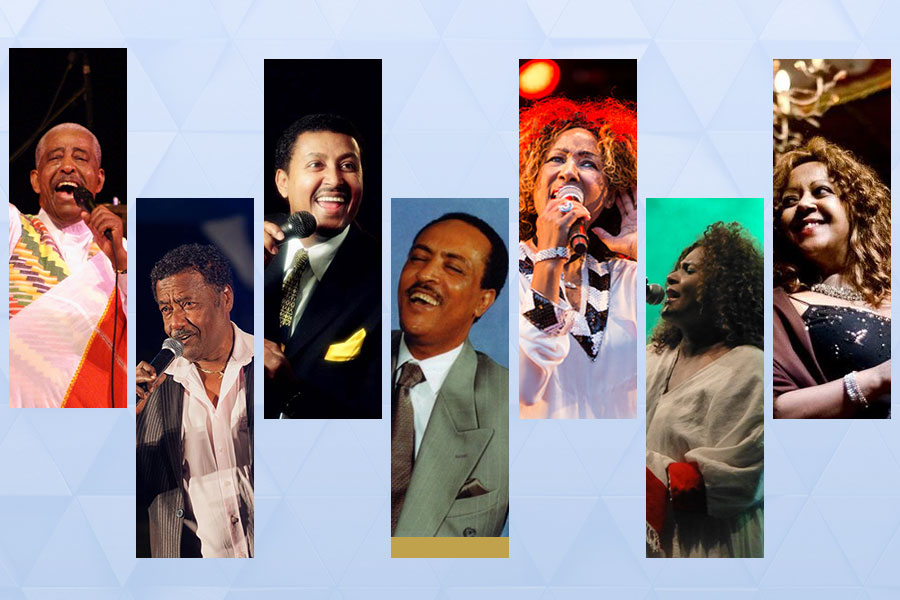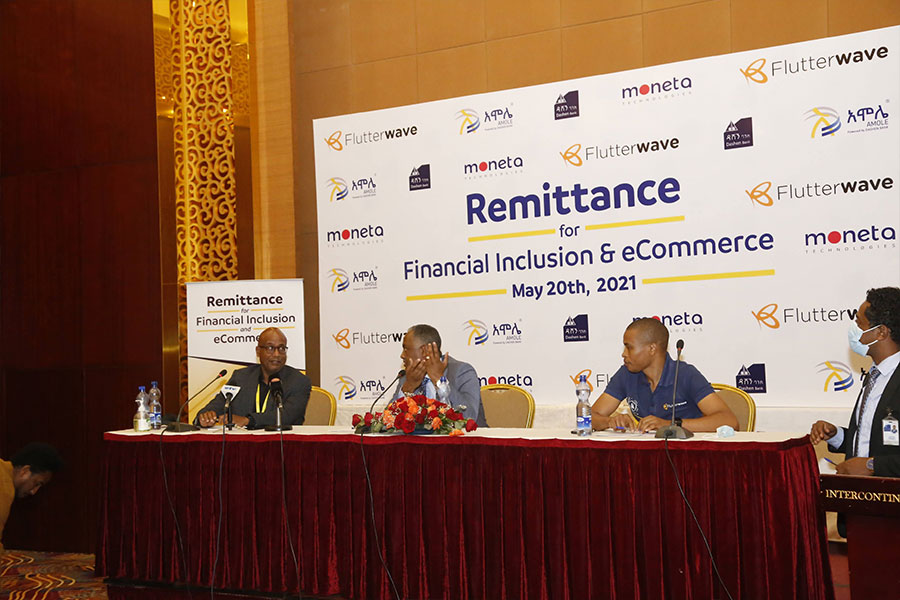
Viewpoints | Aug 08,2020
Aug 18 , 2024
By Amare Gebru
Ethiopia's sporting legacy, much like the storied reign of Emperor Menelik II, has been evidence of the profound impact of effective leadership in achieving victories. However, that legacy is under threat today as the country's sports community squabbles with a pervasive sense of bitterness and disappointment. The discontent is not merely a reflection of recent underperformance but rather a glaring indictment of the leadership governing sports.
A country that once basked in the glory of its world-class athletes — figures like Abebe Bikila, Mamo Wolde, Haile Gebrselassie, Gezahagn Abera, Meseret Defar— and many others now finds itself questioning the very foundation of its sporting institutions. Ethiopia’s rank of 46th in recent competitions represents the lowest achievement in the past 30 years, a depressing contrast to the country’s history in athletics. The precipitous decline is widely perceived not as a failure of the athletes but as the result of deep-seated issues within the management and governance structures of the Ethiopian Athletics Federation and the Olympic Committee.
One of the most pressing concerns within the sports community is the overwhelming presence of non-professionals in key leadership roles. The appointment of individuals lacking the necessary expertise and experience to lead has undermined Ethiopia’s potential for sporting success.
Athletes, once proud standard-bearers of athletic prowess, now express frustration with the direction in which sports are headed. Haile Gebrselassie, a revered figure in global athletics, has voiced his concerns, notably rejecting the results of the most recent election for the Olympic Committee. His objections centred on the leadership's perceived incompetence and the election process's undemocratic nature.
The importance of the Olympic Games to Ethiopia extends far beyond participation. For decades, Ethiopia has been synonymous with marathon excellence, a legacy built on the back of exceptional athletes who brought home 53 gold medals, making Ethiopia the third most successful country, behind only Kenya and South Africa. Yet, recent comments by Ashebir Woldegiorgis (MD), a key figure in sports administration, have raised eyebrows. He argued that mere participation in the Olympics is sufficient, a view many, including Haile, find absurd for a country with a rich history of athletic achievement.
The decline in sporting fortunes is not only a matter of misplaced priorities but also a reflection of broader issues within the leadership of its sports institutions. The election of the current Olympic Committee, criticised for its lack of transparency and inclusivity, has only exacerbated tensions within the community. The discontent is real, with many questioning the legitimacy of the process that brought the current leadership to office.
Political dynamics have also shaped the Olympic Committee's functions, often to the athletes' detriment. Once a source of national pride, the training environment now lacks the cohesion, unity, and strategic coordination necessary for success. Complaints from prominent athletes, including Gezahagn Abera and Alemu Wakjira, have shed light on the substandard conditions they endure, further fueling the reports of mismanagement and inefficiency.
The recent mistreatment of Olympic gold medalist Gezahagn and the grief expressed by Meseret, another of Ethiopia’s celebrated athletes, unearthed the extent of the problems plaguing Ethiopian sports. Gezahagn’s experience, in particular, has become a manifestation of the broader issues facing the athletes. Reports of mistreatment, lack of support, and poor coordination have led to widespread condemnation of the current leadership.
The situation is further complicated by allegations of nepotism and favouritism within the Olympic delegation’s selection process. Questions have been raised about the role of family members in the delegation and the source of funding for their travel expenses. These issues have been widely circulated in informal groups, contributing to the perception of corruption at the highest levels of sports leadership.
Athletes such as Frewoini Hailu and Sutume Assefa have also spoken out about their exclusion from key competitions and the burdens placed on them by the current leadership. Gudaf Tsegay, another prominent athlete, has been overburdened with responsibilities, declining her performance. These incidents have not only tarnished the reputation of the sports but have also strained the relationship between the athletes and their country.
The bond between Ethiopia’s legendary athletes and the country is profound. These athletes are more than sports figures; they are national heroes who embody the aspirations and pride of millions of Ethiopians. Disrespecting them is, in many ways, analogous to disrespecting the country itself. The leadership of the Ethiopian Athletics Federation and the Olympic Committee should recognise this bond and take measures to address the growing discontent within the sports community.
The public and taxpayers, vested in the athletes' success, deserve to know the unvarnished truth. Serious questions about the management of Ethiopian sports cannot be ignored; a thorough investigation into these issues is urgent.
Meaningful reforms are essential if Ethiopia is to reclaim its rightful place on the global athletic stage. The challenges facing Ethiopian sports today transcend the realm of athletics; they strike at the heart of national pride and the legacy of the country’s athletic achievements. By embracing a more transparent, inclusive, and accountable approach to sports management, Ethiopia can restore confidence in its athletes, inspire future generations, and once again lead the world in sporting excellence.
PUBLISHED ON
Aug 18,2024 [ VOL
25 , NO
1268]


Viewpoints | Aug 08,2020

Radar | Jul 13,2024

Viewpoints | Jan 21,2023

Exclusive Interviews | Apr 19,2025

View From Arada | Nov 21,2020

Radar | Jun 22,2024

Fortune News | Sep 30,2023

Radar | May 06,2023

My Opinion | Sep 24,2022

Agenda | Jun 05,2021

Photo Gallery | 174820 Views | May 06,2019

Photo Gallery | 165041 Views | Apr 26,2019

Photo Gallery | 155296 Views | Oct 06,2021

My Opinion | 136727 Views | Aug 14,2021

Dec 22 , 2024 . By TIZITA SHEWAFERAW
Charged with transforming colossal state-owned enterprises into modern and competitiv...

Aug 18 , 2024 . By AKSAH ITALO
Although predictable Yonas Zerihun's job in the ride-hailing service is not immune to...

Jul 28 , 2024 . By TIZITA SHEWAFERAW
Unhabitual, perhaps too many, Samuel Gebreyohannes, 38, used to occasionally enjoy a couple of beers at breakfast. However, he recently swit...

Jul 13 , 2024 . By AKSAH ITALO
Investors who rely on tractors, trucks, and field vehicles for commuting, transporting commodities, and f...

Oct 18 , 2025
The political establishment, notably the ruling party and its top brass, has become p...

Oct 11 , 2025
Ladislas Farago, a roving Associated Press (AP) correspondent, arrived in Ethiopia in...

Oct 4 , 2025
Eyob Tekalegn (PhD) had been in the Governor's chair for only weeks when, on Septembe...

Sep 27 , 2025
Four years into an experiment with “shock therapy” in education, the national moo...

Oct 18 , 2025 . By NAHOM AYELE
In a sweeping reform that upends nearly a decade of uniform health insurance contribu...

Oct 18 , 2025 . By BEZAWIT HULUAGER
A bill that could transform the nutritional state sits in a limbo, even as the countr...

Oct 18 , 2025 . By SURAFEL MULUGETA
A long-planned directive to curb carbon emissions from fossil-fuel-powered vehicles h...

Oct 18 , 2025 . By BEZAWIT HULUAGER
Transaction advisors working with companies that hold over a quarter of a billion Bir...